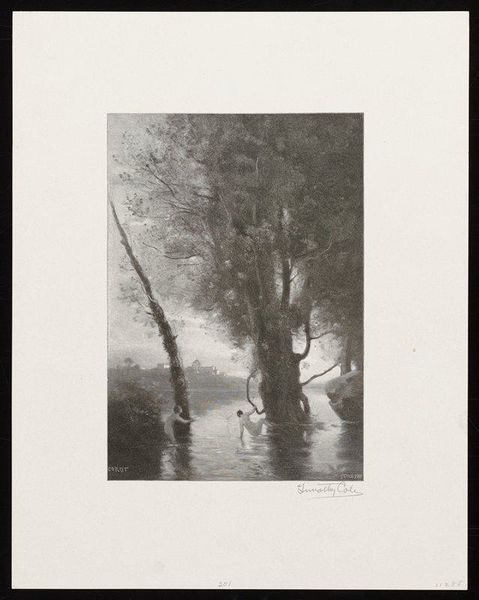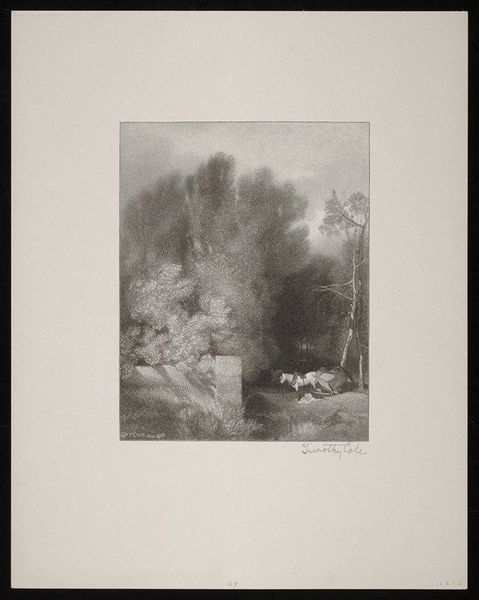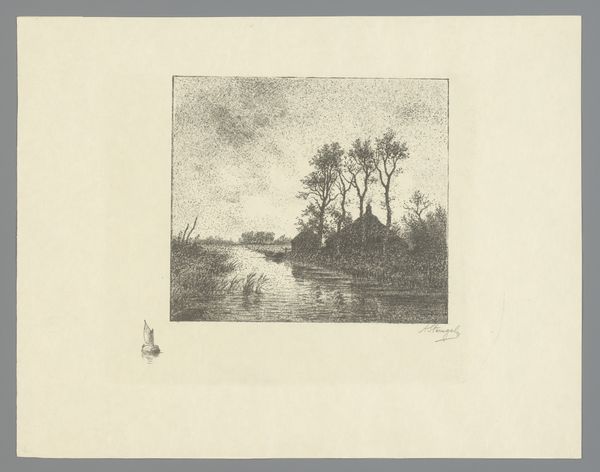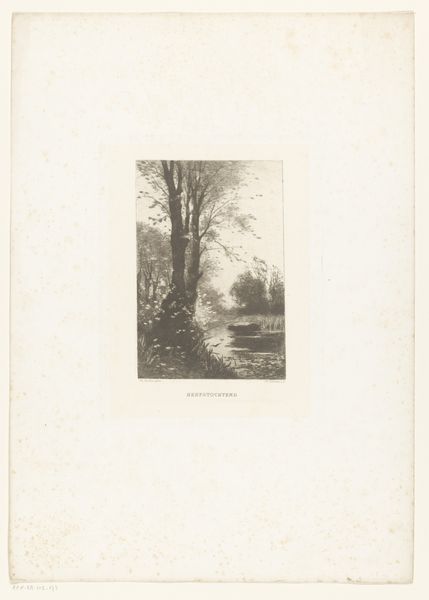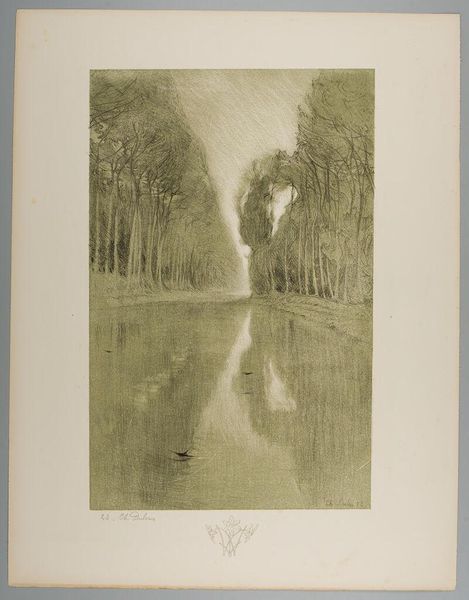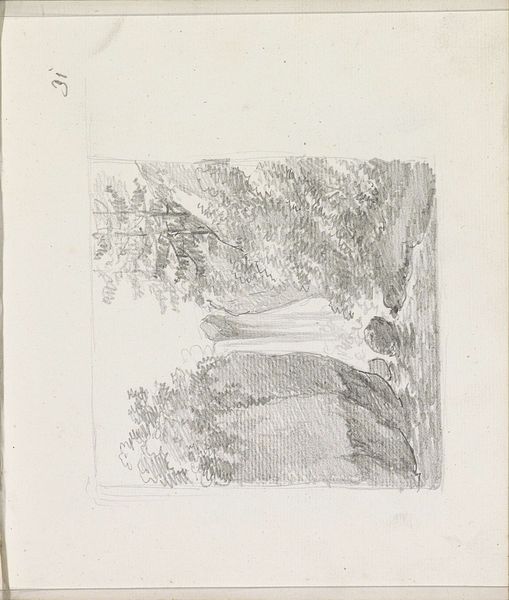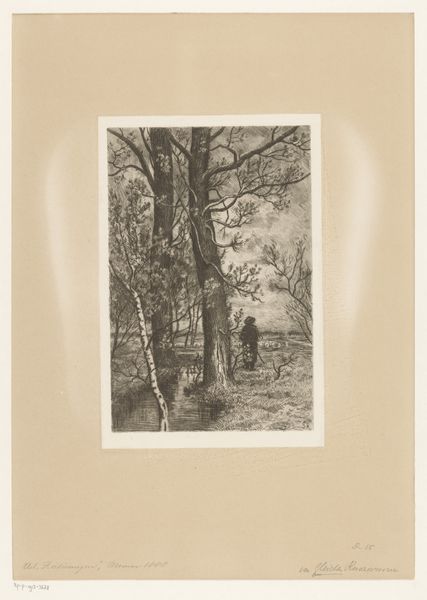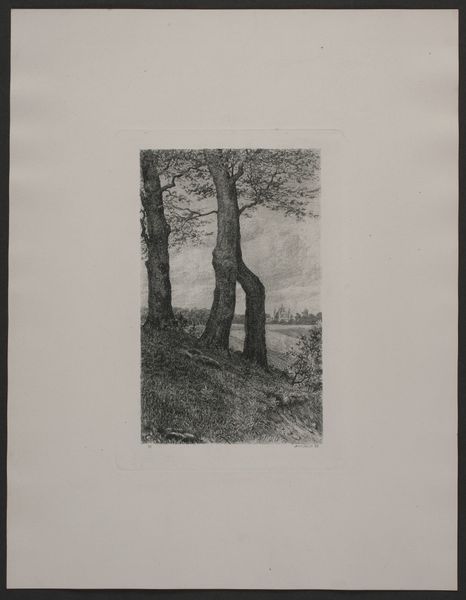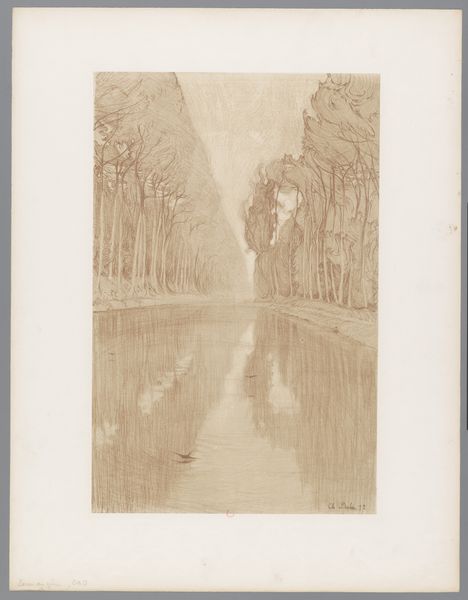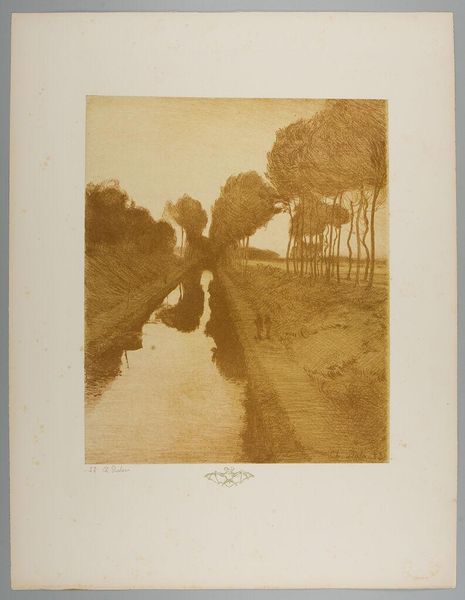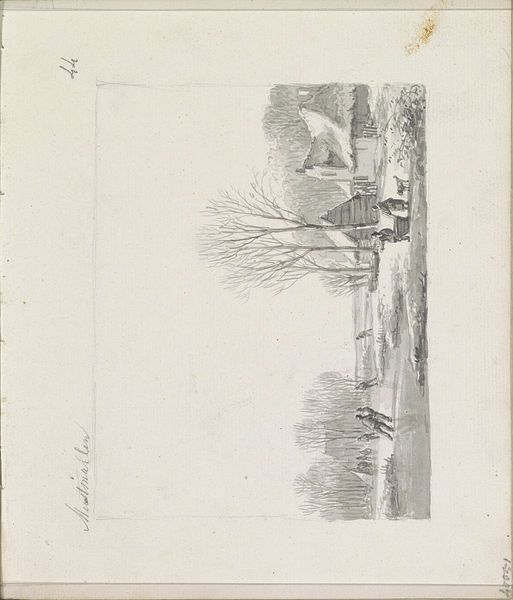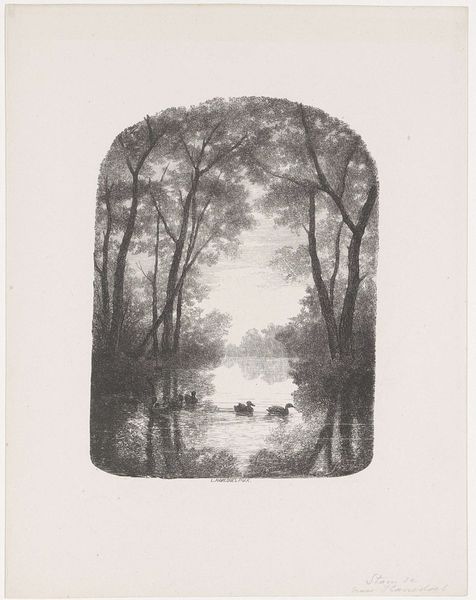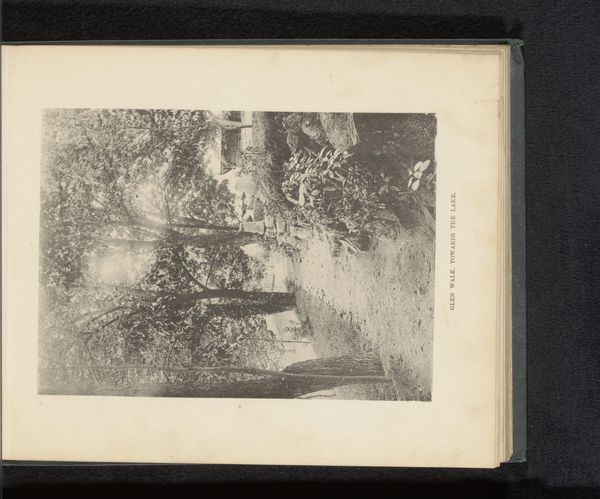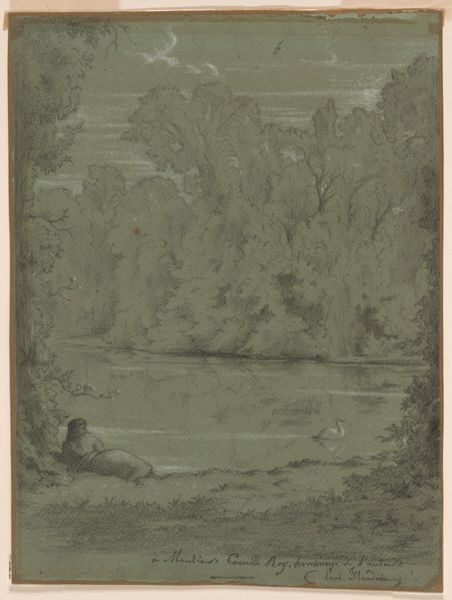
drawing, print, woodcut, wood-engraving
drawing
landscape
figuration
pencil drawing
woodcut
wood-engraving
Dimensions: 7 9/16 x 5 1/4 in. (19.21 x 13.34 cm) (plate)11 15/16 x 8 15/16 in. (30.32 x 22.7 cm) (sheet)
Copyright: No Copyright - United States
Curator: Before us is Timothy Cole's wood-engraving "The Bathers," created in 1910, after Corot. Editor: It’s moody. The gray-scale, combined with that dense grouping of trees, creates a slightly melancholic, almost mystical atmosphere. The figures feel very vulnerable. Curator: Wood-engraving as a medium, particularly during this period, often involved a translation. Cole, through his meticulous process, reproduces Corot's painting, thus engaging in a conversation across time and artistic intent. Consider, too, the selection of Corot, famous for his landscape and engagement with naturalism. Cole’s reproductive work becomes an active interpretation of art history. Editor: I see the symbol of purification, both in the ritual of bathing and in the forest. Water holds so many collective meanings related to cleansing, and the forest… it speaks of an escape from the structures of the everyday world. But look closer. I sense both serenity and something slightly unsettling. Are these women escaping something, perhaps societal expectations? Curator: That’s astute. If we position this image within a broader framework of early 20th-century societal norms, the act of women bathing becomes charged with implications of freedom, and the disruption of traditionally assigned roles. Their near-nakedness could then challenge the contemporary gaze. Editor: The density of the wood-engraving is powerful, and almost obscures them into their natural surroundings. One emerges from the tree-line and the other appears immersed in water up to her torso. A connection between them and the environment seems inevitable here; a subtle resistance perhaps, conveyed through imagery, even as Cole transcribes a visual text from the past. Curator: It underlines the complex web of influence, medium, gender, and resistance present, where a simple pastoral scene holds significant undertones that intersect across time. Editor: This print, more than just a landscape, is an example of the power imagery can carry—whispers from the past and subtle commentaries about our world and its structures.
Comments
No comments
Be the first to comment and join the conversation on the ultimate creative platform.
